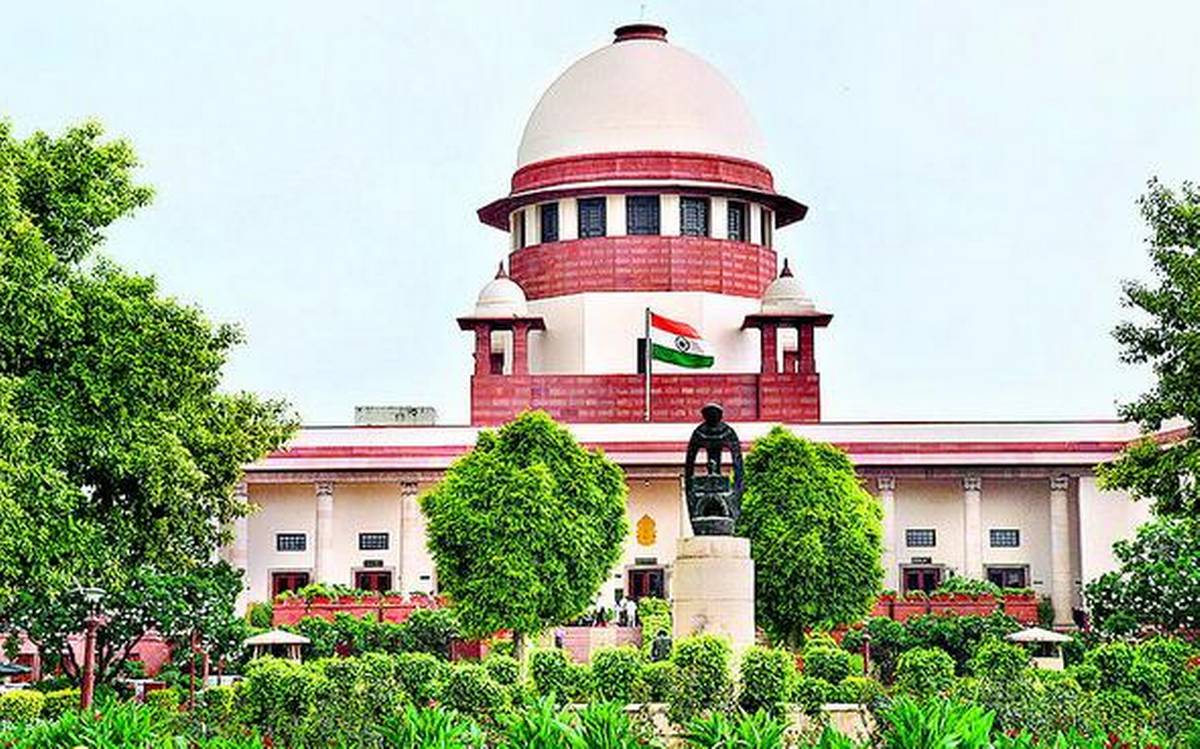
Manas Dasgupta
NEW DELHI, Sept 15: The Supreme Court on Wednesday expressed disapproval of the way the centre was making appointments in various tribunals across the country and said it was “upset” over the “cherry-picking” from its list of recommendations but wanted to avoid “confrontation with the government.”
A Special Bench of Chief Justice of India N.V. Ramana, Justices D.Y. Chandrachud and L. Nageswara Rao “held its hand” on initiating contempt proceedings against the government and allowed the latter two weeks to make appointments to all the tribunals. “If the government does not act, we will pass orders,” the CJI said.
The government was given “final” two weeks’ time to complete tribunal appointments with the Supreme Court sternly saying: “Return with the appointment letters…and if someone is not appointed, then cite the reason.”
“We are upset… but we don’t want confrontation with the government,” the Chief Justice Ramana said to which Solicitor General Tushar Mehta, replied: “Government doesn’t want confrontation either.”
Making a series of sharp remarks demonstrating its unhappiness over the government’s response to the recommendations of the selection committees,’ some of which were headed by the Supreme Court judges, over the appointment in tribunals, Ramana said, “We are a democratic country. You have to follow the rule of law.”
Chief Justice Ramana termed the state of tribunals and the thousands of litigants waiting for justice “pitiable”. Cases were adjourned for months. There was no manpower to form Benches. Litigants were made to travel to other faraway States where there were at least some tribunal members available to hear their cases.
The Bench addressed Attorney General K.K. Venugopal about how the government pulled the rug from underneath the hard work of the search-cum-selection committees headed by sitting Supreme Court judges tasked with interviewing and shortlisting suitable candidates for the tribunals. The government picked a few names from the final ‘select’ list prepared by the committee and then moved on to appoint a few other names from the ‘wait’ list, the Chief Justice said.
“I have seen the NCLT (National Company Law Tribunal) appointments…. more recommendations were made. But in (the) appointments, cherry picking was done. What kind of selection is this? And the same thing (has been) done with (the) ITAT (Income Tax Appellate Tribunal) members also. We are very unhappy with how the decisions are being taken,” the Chief Justice said.
“I am also part of the NCLT Selection Committee. We interviewed 544 people… out of which we gave the names of 11 judicial members and 10 technical members. From all of these recommendations, only some of them were appointed by the government… rest of the names went to (the) wait list,” he added. To this, Attorney General KK Venugopal replied: “The government is entitled to not follow certain recommendations.”
The Chief Justice underscored that the government’s approach “is very unfortunate. We travelled throughout the country to conduct interviews. We wasted our time? We travelled in the midst of Covid because the government (had) requested us to carry out the interviews,” he said.
A three-judge bench of Chief Justice Ramana, justices Chandrachud and Nageswara Rao was hearing the matter. “What is the sanctity of the selection committee (which is headed by Supreme Court Judges) if the government is going to have the last say? The selections that we conducted will become useless,” Justice L Nageswara Rao said. “People are left in lurch. When they go to the high courts, they are told to go to tribunals. But there are vacancies in tribunals,” said Justice DY Chandrachud
Last week, the apex court had given the government one week’s time to fill the vacancies in tribunals, or quasi-judicial bodies, across the country. Ramana said “we feel the government has no respect for this court” and warned “you (the government) are testing our patience.”
Justice Chandrachud highlighted the case of debt recovery tribunals which had become almost non-functional under the weight of their vacancies. “When a bank decides to recover debt on a house or a factory, the debtor has no remedy. The High Court refuses to hear his case… There is no recourse to justice,” Justice Chandrachud said.
“We are upset… but we don’t want confrontation with the government,” the Chief Justice said. “Vacancies in critical tribunals like NCLT and NCLAT (National Company Law Appellate Tribunal)… they are important for the economy. Vacancies also in armed forces and consumer tribunals are leading to delays in resolution of cases,” the court said.
The Supreme Court also issued a notice, asking the centre to file its counter affidavit in two weeks. Rajya Sabha MP Jairam Ramesh had filed a petition to declare unconstitutional provisions of the Tribunal Reforms Act of 2021, which revives an ordinance struck down by the Supreme Court. Ramesh said the law, which abolishes nine key tribunals, “raises a serious threat to judicial independence by giving the government sweeping powers regarding appointments, service conditions, and salaries of members of key tribunals.”
The CJI pointed out that as per the latest appointment orders, the judicial members would only have a tenure of one year. “Which High Court judge will go for a one-year tenure,” the CJI asked.
Senior advocate Arvind Datar said the latest tribunal appointment letters issued by the government under the new Tribunal Reforms Act of 2021 showed that members had a tenure of four years or till the age of 67 or “until further orders.”
“There is no provision under the law for the government to say ‘until further orders.’ The government cannot revoke an appointment at its will. This affects judicial independence,” Datar submitted.
Justice Chandrachud pointed out that the Centre had made the few latest tribunal appointments on the basis of the same provisions which were struck down as unconstitutional by the Supreme Court recently. “We will do something… We will certainly do it,” Venugopal assured.












